

Custom Search
Sunday, February 14, 2016
OBAMA WELCOMES BATTLE TO REPLACE SCALIA DURING HIS 2nd TERM: (LEGACY)
OBAMA WELCOMES BATTLE TO REPLACE SCALIA DURING HIS 2nd TERM: (LEGACY)
ANNOUNCES HE WILL NOMINATE SCALIA'S REPLACEMENT.
APPOINTMENT OF SCALIA'S REPLACEMENT WILL FULFILL OBAMA'S LEGACY.
President Obama declared Saturday that he intends to nominate a replacement for the late Supreme Court Justice Antonin Scalia, a move aimed at deepening his imprint on the nation’s highest court.
“I plan to fulfill my constitutional responsibilities to nominate a successor in due time,” Obama said, adding that there’s “plenty of time” for the Senate “to give that person a fair hearing and a timely vote.
These are responsibilities that I take seriously, as should everyone.
They’re bigger than any one party — they’re about a democracy.”
But the president faces a fierce and protracted battle with Republicans who have already signaled that they have no intention of allowing Obama to choose a nominee to succeed Scalia.
Majority Leader Mitch McConnell (R-Ky.) and Senate Judiciary Committee Charles E. Grassley (R-Iowa) said that Scalia should not be replaced until the next president has taken office. “The American people should have a voice in the selection of their next Supreme Court Justice,” McConnell said in a statement.
Senate Minority Leader Harry M. Reid (D-Nev.) rejected that position. “It would be unprecedented in recent history for the Supreme Court to go a year with a vacant seat,” he said in a statement. “Failing to fill this vacancy would be a shameful abdication of one of the Senate’s most essential Constitutional responsibilities.”
Obama has nominated two justices to the court in the past, and he has expressed the desire for jurists with empathy.
He did not discuss his thinking about that on Saturday night. Instead, he used the moment to pay tribute to Scalia, whom he described as an “extraordinary judicial thinker.”
In selecting Supreme Court nominees, Obama has relied heavily on the advice of Vice President Biden, a former Senate Judiciary chairman.
Biden has demonstrated again and again a strong working relationship with McConnell, having previously negotiated several tax and budget deals.
The court nomination may hinge on Biden’s ability to reach a deal with McConnell again.
But the fate of the nomination would clearly be in Republican hands. While Democrats were able to change the rules in 2013 to make it easier to approve lower court judges with a simple majority, Supreme Court nominations still require 60 votes to advance past an opposition filibuster.
To derail or delay the nomination, McConnell could simply not schedule a vote, but even if he allows Senate consideration of the nomination, Democrats do not have the numbers to overcome a GOP filibuster.
Although the Republican-controlled Congress could easily thwart an Obama nominee, such a decision could reverberate across the presidential campaign and into in the November elections, in which several GOP senators face tough, competitive races.
The most immediate outcome of the Scalia vacancy is that it offers Obama the chance to draw sharper battle lines with Republicans during an increasingly acrimonious presidential election.
The administration now faces a chaotic political and legal environment in which the president must prepare for a bitter confirmation fight or embrace the prospect of a deadlocked Supreme Court divided evenly between liberals and conservatives.
Scalia’s death also throws into doubt the outcome of some of the most controversial issues facing the nation in cases before the court this term: abortion, affirmative action, the rights of religious objectors to the contraceptive mandate in the Affordable Care Act, and the president’s powers on immigration and deportation.
A deadlocked court could leave appellate decisions in place without setting a precedent.
That would please the administration on a case involving union membership, for instance, but would keep Obama’s executive action on deportation from being implemented.
White House officials would not comment Saturday evening on their deliberations about a potential nominee, but the administration has an extensive list of possible candidates to choose from, including some who would change the face of the court by virtue of their race or sexual orientation.
“Blocking a strong person of color, a woman or an historic LGBT candidate for the Supreme Court might cause conservatives more trouble than they think they’re preventing,” said Robert Raben, a Democratic consultant and lobbyist who served as a senior Justice Department official under President Clinton. “The perception of unfairness or bias at the height of a national election could seriously backfire.”
One former senior administration official, who spoke on the condition of anonymity because of the sensitivity of the subject, said the president was likely to look to someone young enough to make a mark on the court over several decades. Obama has appointed several such jurists to U.S. appellate courts, the person noted, providing him with a relatively deep bench to from which to choose.
Among the leading candidates would be Sri Srinivasan, a judge on U.S. Court of Appeals for the District of Columbia Circuit, who was confirmed to seat in a 97-to-0 Senate vote in May 2013. Srinivasan would be the first South Asian American on the court.
He worked in the U.S. Solicitor General’s office under both Obama and President George W. Bush, and clerked for former Supreme Court Justice Sandra Day O’Connor.
Other contenders from that same court include its chief judge, Merrick Garland, who is well liked by conservatives and was a finalist for such a nomination when Obama selected Justice Elena Kagan in 2010.
Patricia Ann Millett, who won confirmation to the D.C. Circuit in December 2013, may also be considered.
Obama could also look to current or former administration officials, said those familiar with the president’s thinking, or even to the Senate.
Among those officials are Attorney General Loretta E. Lynch, Solicitor General Donald B. Verrilli Jr., Homeland Security Secretary Jeh Johnson and Eric Holder, the former attorney general.
Other potential choices could include Deval Patrick (D), the former governor of Massachusetts, or Paul Smith, who chairs the appellate and Supreme Court practice at Jenner & Block and, if confirmed, would be the first openly gay justice.
Beyond the D.C. Circuit, there are many other appellate judges the president could look to in selecting a nominee. Those include Paul Watford and Mary H. Murguia of the 9th Circuit; Albert Diaz of the 4th Circuit and Ojetta Rogeriee Thompson of the 1st Circuit.
Regardless of whom Obama selects, the combination of the timing of the opening, the stark division on the court and deeply partisan passion being evoked in both presidential primaries would make this confirmation battle unlike any of the past 40 years.
The last confirmation in the eighth year of a presidency was Justice Anthony M. Kennedy, whose 97-to-0 vote in February 1988 came after two failed nomination efforts by President Reagan in the face of a Democratic-controlled Senate in late 1987.
Kennedy is seen as a traitor among conservative activists, who view his rulings on abortion and gay rights with the liberal bloc as an example of GOP leaders choosing political expediency over ideological rigidity.
The only other attempt to fill a vacancy during a presidential election year came in 1968, when President Lyndon Johnson tried to elevate Abe Fortas to be chief justice.
The Senate blocked Fortas.
Subsequently, the other nomination to fill Fortas’s spot as associate justice was withdrawn during the final months of Johnson’s presidency.
Under normal circumstances, the nomination of a justice takes about 75 to 90 days, the first 60 or so involving a thorough vetting process by the Senate Judiciary Committee.
Typically, the panel does not consider judicial nominees after mid-May, under a tradition established by the late Strom Thurmond (R-S.C.). While chairing the Judiciary Committee, Thurmond declared that he would not take up new judicial nominations within a few months of a presidential election.
Filling the post of Scalia, however, will be anything but normal.
He was the outspoken champion for the court’s conservative wing and had many admirers in the Senate, including McConnell. Obama’s first two appointments to the court were relatively easy because Justices Sonia Sotomayor and Kagan were replacing liberal-leaning justices.
Senate conservatives, already predisposed to not approve of Obama’s choice, might be loath to allow him to replace their judicial hero with a liberal jurist who would tip the court in a left-leaning direction.
As of now, Sotomayor and Kagan often sided with Justices Ruth Bader Ginsburg and Stephen G. Breyer in the most ideologically driven cases, with Kennedy and sometimes Chief Justice John G. Roberts Jr. providing the tie-breaking votes.
If Republicans leave the Scalia seat vacant for any lengthy time, that sets up the chance of a series of 4-to-4 votes in which the ruling of the lower federal court would stand as the law of that particular region of the country.
That political math in the Senate means Obama will need the support of all 46 members of the Democratic caucus and at least 14 Republicans to end a filibuster and successfully appoint Scalia’s successor.
In the president’s previous Supreme Court nominations, just nine and then four Republicans voted to confirm Sotomayor and Kagan, respectively.
Sources: CNN, Washington Post, Youtube


Labels:
2016,
Antonin Scalia,
Barack Obama,
Battles,
Congress,
deaths,
Delay Tactics,
GOP,
Presidential Legacy,
SCOTUS Nominee
Subscribe to:
Post Comments (Atom)

















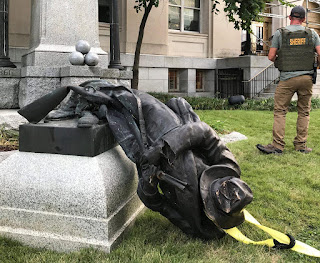

























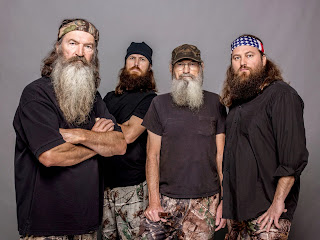






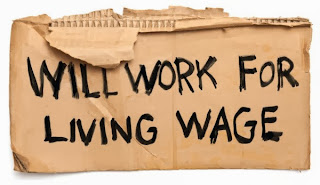





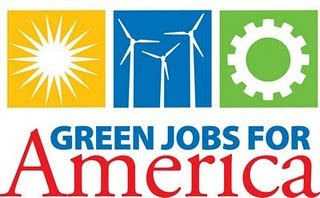






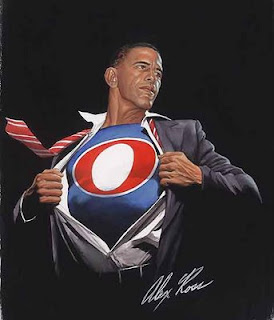




.jpg)








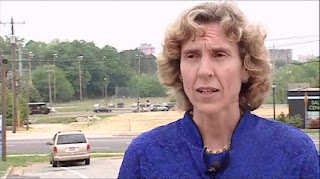














No comments:
Post a Comment